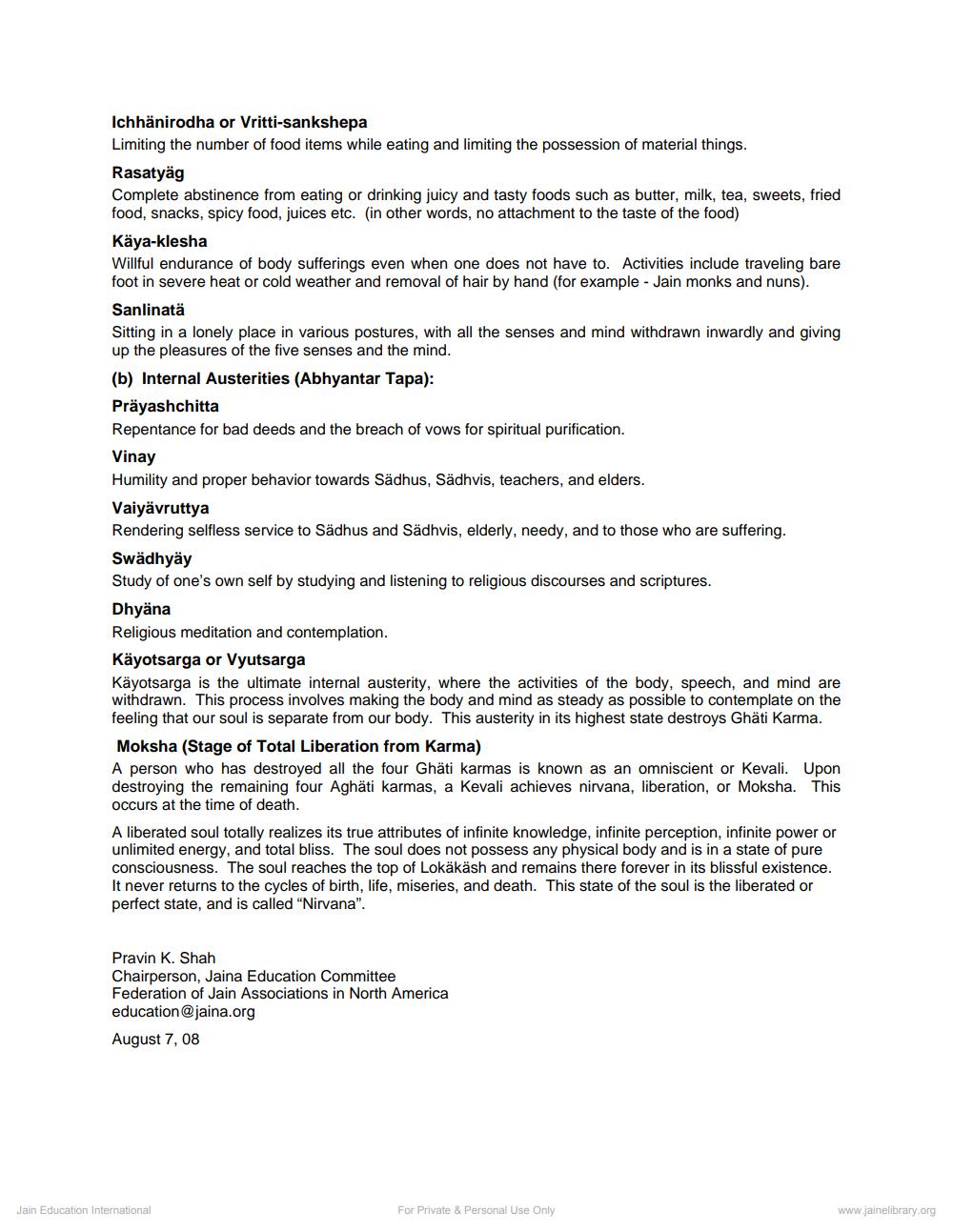Book Title: Nine or Nav Tattvas Author(s): Jaina Education Publisher: JAINA Education Committee View full book textPage 8
________________ Ichhanirodha or Vritti-sankshepa Limiting the number of food items while eating and limiting the possession of material things. Rasatyag Complete abstinence from eating or drinking juicy and tasty foods such as butter, milk, tea, sweets, fried food, snacks, spicy food, juices etc. (in other words, no attachment to the taste of the food) Kaya-klesha Willful endurance of body sufferings even when one does not have to. Activities include traveling bare foot in severe heat or cold weather and removal of hair by hand (for example - Jain monks and nuns). Sanlinata Sitting in a lonely place in various postures, with all the senses and mind withdrawn inwardly and giving up the pleasures of the five senses and the mind. (b) Internal Austerities (Abhyantar Tapa): Prayashchitta Repentance for bad deeds and the breach of vows for spiritual purification. Vinay Humility and proper behavior towards Sadhus, Sadhvis, teachers, and elders. Vaiyavruttya Rendering selfless service to Sadhus and Sadhvis, elderly, needy, and to those who are suffering. Swadhyay Study of one's own self by studying and listening to religious discourses and scriptures. Dhyana Religious meditation and contemplation. Kayotsarga or Vyutsarga Kayotsarga is the ultimate internal austerity, where the activities of the body, speech, and mind are withdrawn. This process involves making the body and mind as steady as possible to contemplate on the feeling that our soul is separate from our body. This austerity in its highest state destroys Ghati Karma. Moksha (Stage of Total Liberation from Karma) A person who has destroyed all the four Ghati karmas is known as an omniscient or Kevali. Upon destroying the remaining four Aghati karmas, a Kevali achieves nirvana, liberation, or Moksha. This occurs at the time of death. A liberated soul totally realizes its true attributes of infinite knowledge, infinite perception, infinite power or unlimited energy, and total bliss. The soul does not possess any physical body and is in a state of pure consciousness. The soul reaches the top of Lokakash and remains there forever in its blissful existence. It never returns to the cycles of birth, life, miseries, and death. This state of the soul is the liberated or perfect state, and is called "Nirvana". Pravin K. Shah Chairperson, Jaina Education Committee Federation of Jain Associations in North America [email protected] August 7, 08 Jain Education International For Private & Personal Use Only www.jainelibrary.orgPage Navigation
1 ... 6 7 8
